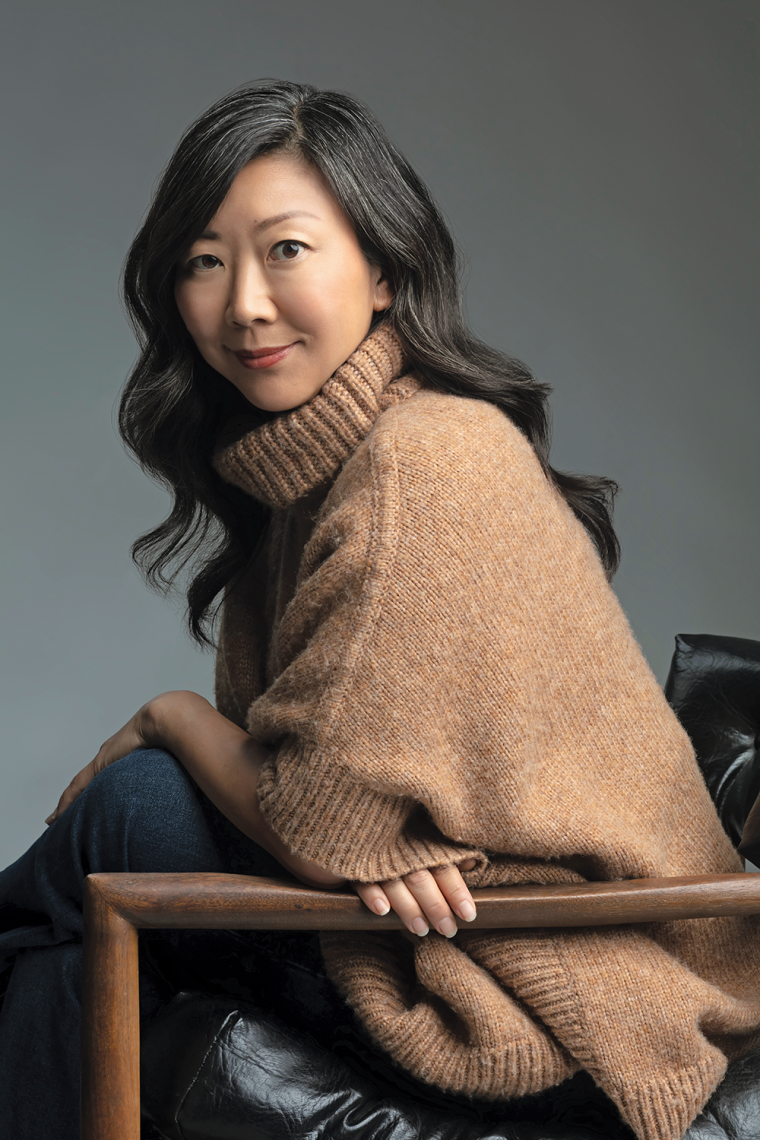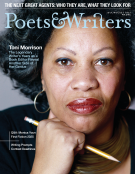In March, Monica Youn was appointed the new judge of the Yale Series of Younger Poets, the oldest annual literary award in the United States, offering a $1,000 advance and a publication contract from Yale University Press for a debut poetry collection. She succeeds Rae Armantrout, who had served as judge since 2021. A former constitutional lawyer, Youn is a professor of English at the University of California in Irvine and president of the board of Poets House in New York City. She is the author of From From (Graywolf Press, 2023), which was a finalist for the 2023 National Book Award in Poetry; Blackacre (Graywolf Press, 2016), winner of the William Carlos Williams Award from the Poetry Society of America; Ignatz (Four Way Books, 2010), a finalist for the 2010 National Book Award in Poetry; and Barter (Graywolf Press, 2003). Youn recently spoke about the value of publishing a debut collection regardless of the author’s age, how form helps poems come alive, and what she is looking for as she reads submissions in her new role.

Monica Youn, judge of the Yale Series of Younger Poets. (Credit: Beowulf Sheehan)
How do you envision the Yale Series of Younger Poets under your curation?
I can’t say that I am bringing much of an agenda to this judgeship, and I think that’s as it should be. I’ve always prided myself on being a very heterodox reader liking all kinds of things across traditions. From a first-book context, I’m looking for people who are, I think, bringing something that I haven’t seen before to the field of poetry. That doesn’t necessarily mean capital-E experimental. It can be a new tone, a new attitude. It can be a new angle, even on a familiar subject matter. But a perspective or approach to things that I feel like we haven’t seen before.
The series only accepted submissions by poets under the age of forty until it removed its age requirement in 2015. What do you think of this transition away from the focus on “younger”?
I’m glad they got rid of the age range, which always seemed to be kind of embarrassing and demeaning to the people who did win the prize. This is a first-book prize, a debut volume. People make their debuts at different times in their lives. Some of the most important works that we’ve seen in the last ten years have been debut volumes, and I think that’s always been true. So to call it a “younger poet’s prize” sounds like you’re sitting at the kiddie table, and I don’t see it that way.
Beyond the obvious “send your best work,” what advice do you have for poets submitting to the prize?
I advise MFA theses, and so much of the work is identifying where in the poems convention or the default takes over. I’m always looking for a poet who is bringing their choices to life on the page, the sense of line-by-line decision-making that doesn’t fall into a mold or mode. That sort of writing is exciting to me in whatever form it takes. Can you bring that out more and not try to embalm it in this sort of conventional shape? Form should be part of that aliveness. It should not be packaging. And I think that poets are spending a little too much time on the packaging of their poems and not enough time on the poem alive on the page.
What role do you see the prize playing in shaping American poetry?
I think that competitions like the Yale Series of Younger Poets obviously have a certain prestige value, as does the name Yale itself. I’ve always been suspicious of exactly that kind of prestige. It strikes me like a logo on a handbag, essentially meaningless—is it a good handbag or not? Is it well designed? So I don’t feel like it’s my role to say that this prize should be considered more important than other prizes. I’m very excited that I get to bring a new voice into the world of published poems for the length of my term. I think that’s an unbelievable opportunity, as is introducing the poet in the foreword and offering my perspective about why this voice is singular and important right now. As to the prestige value of the prize, I don’t have much of an interest in bolstering that. That being said, I do think that the distinguished lineage of the prize and the poets it has picked are a valuable heritage to draw on. I would love to see more interaction among the alums of this prize and to see what we can do in terms of bringing that to ongoing mentorship of poets who are trying to publish their first books.
Maya C. Popa is the author of Wound Is the Origin of Wonder (Norton, 2022) and American Faith (Sarabande Books, 2019). She runs Conscious Writers Collective, an online writing program and community.








